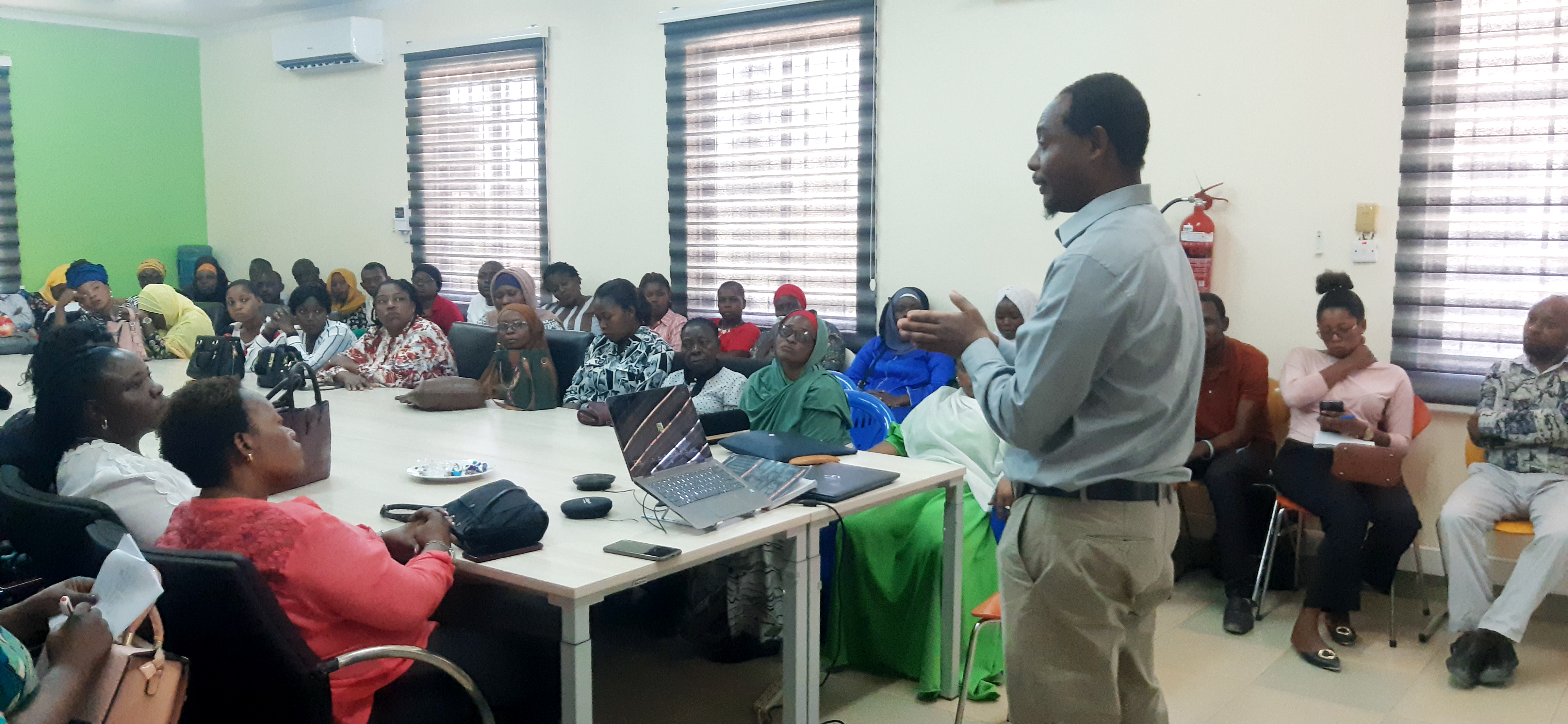
RESEARCH: Ifakara successfully scales up COVID-19 self-testing in Dar

Ifakara Health Institute today hosted over 60 community health workers (CHWs) and community-based health care coordinators from Ilala, Temeke and Kinondoni who were involved in scaling up self-testing for COVID-19 in the city of Dar es Salaam.
The scaling up exercise which was implemented in selected Dar es Salaam suburbs by using the Antigen Rapid Diagnostic Tests (AgRDTs) self-test kits as part of a trial called ANTICOV which is implemented by Ifakara and partners.
The deployment of CHWs to administer the AgRDTs in the three selected areas in Dar es Salaam was part of the ongoing COVITEST program implemented by Ifakara. The project aimed to evaluate the implementation strategies for COVID-19 diagnostic, treatment and prevention in Tanzania.
The program began in October 2021 and is conducted by Ifakara researcher Dr. Salim Abdulla, the Programme Director, who is working alongside Dr. Grace Mwangoka, the Programme Coordinator, Dr. Mwifadhi Mrisho, the Project Leader and Dr. Ally Hamadi, the Project Investigator for the ANTICOV Trial.
Addressing the CHWs at the meeting, Dr. Mrisho said: “Six months ago, we began implementation of this project in Dar es Salaam and for the first time we introduced the use of Antigen Rapid Diagnostic Tests for testing COVID-19 in Tanzania.
“I want to applaud all community health workers who were involved in the implementation of this project, for your cooperation, and efforts and for ensuring that sample collection from eligible participants within the selected communities was attainable within the set timeline. As result, we have been able to reach and test 9,000 participants using the AgRDTs within the six-month period.”
Since kicking off the COVID-19 diagnostics phase using the AgRDTs the project has been able to scale up COVID-19 testing in Tanzania, especially within communities. One of the main objectives of the program was to respond to the COVID-19 National Response Plan including guiding the development of the national roll-out plan for AgRDT testing.
“With the pilot deployment of CHWs to administer the AgRDT testing in three selected regions – Ilala, Temeke, and Kinondoni – the project was successful in reaching 90% of its set objectives. This has proven that CHWs can indeed be dependable even more so than hospitals,” Dr. Ally applauded the CHWs for their contribution.
In his closing remarks, Dr. Salim said: “Our plan is to continue to educate the public about the importance of self-testing for COVID-19 using self-test kits. We want to encourage people to learn and be able to use them without fear and hopefully, in the near future when the self-test devices and kits become available throughout the country it will be easier for people to use them.”
Over 60 community health workers and coordinators attended the meeting which marked the closure of the COVITEST project. Representatives from Ilala, Temeke and Kinondoni each shared a few remarks highlighting their experiences while working in the field and the challenges they faced throughout the six-month period.
Also in attendance were Community Based Health Care Coordinators, Sophia Ntomola from Ilala, Magreth Pesambili from Temeke and Grace Mamkwe from Kinondoni who were also involved in the COVITEST project. Together, they expressed their appreciation to the CHWs and congratulated them for their work ethics, integrity and teamwork.
At the end of the meeting, all CHWs were awarded two certificates each – one for attending training and a certificate of appreciation. The certificates were presented by Community Based Health Care Coordinators.
